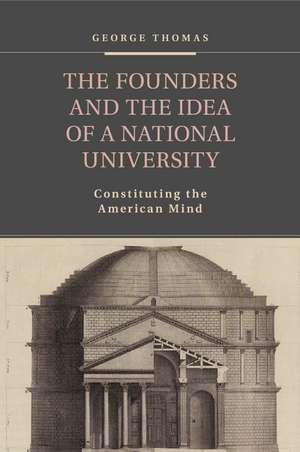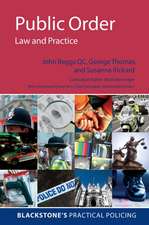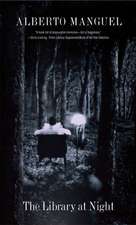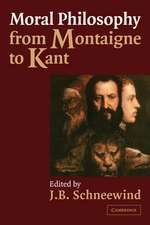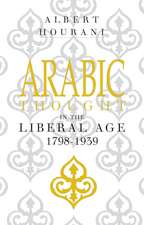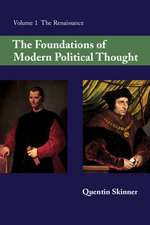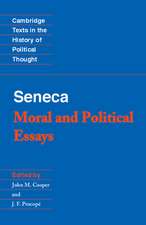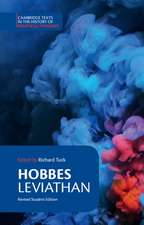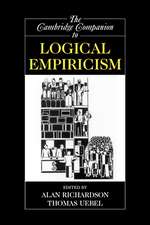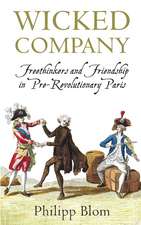The Founders and the Idea of a National University: Constituting the American Mind
Autor George Thomasen Limba Engleză Paperback – 9 aug 2017
| Toate formatele și edițiile | Preț | Express |
|---|---|---|
| Paperback (1) | 266.60 lei 6-8 săpt. | |
| Cambridge University Press – 9 aug 2017 | 266.60 lei 6-8 săpt. | |
| Hardback (1) | 679.94 lei 6-8 săpt. | |
| Cambridge University Press – 27 noi 2014 | 679.94 lei 6-8 săpt. |
Preț: 266.60 lei
Nou
Puncte Express: 400
Preț estimativ în valută:
51.03€ • 53.07$ • 42.76£
51.03€ • 53.07$ • 42.76£
Carte tipărită la comandă
Livrare economică 13-27 martie
Preluare comenzi: 021 569.72.76
Specificații
ISBN-13: 9781107443884
ISBN-10: 1107443881
Pagini: 251
Dimensiuni: 152 x 230 x 15 mm
Greutate: 0.37 kg
Editura: Cambridge University Press
Colecția Cambridge University Press
Locul publicării:New York, United States
ISBN-10: 1107443881
Pagini: 251
Dimensiuni: 152 x 230 x 15 mm
Greutate: 0.37 kg
Editura: Cambridge University Press
Colecția Cambridge University Press
Locul publicării:New York, United States
Cuprins
Introduction; 1. The national-university vision and American constitutionalism; 2. The national university and constitutional limits; 3. The national university and state institutions; 4. Constituting the university; 5. Education, the national university, and constituting national identity; 6. The civic dimensions of American constitutionalism; Conclusion: the Constitution and the American mind.
Recenzii
'George Thomas exposes the error of two widely held views about the American founding fathers: that they were committed chiefly to a set of decisional procedures, not to a specific way of life, and that they thought 'checks and balances' would secure good government without the need to cultivate a competent and public-spirited leadership community. This well-written book is a major contribution to American constitutional thought.' Sotirios A. Barber, University of Notre Dame, Indiana
'George Thomas understands the potential of a constitution for constituting a people. He also understands what is essential for realizing this potential. All of this is evident in The Founders and the Idea of a National University, a superbly illuminating study of an unrealized component of constitutional design that through his efforts may yet contribute to the sustaining of the American political order.' Gary Jeffrey Jacobsohn, University of Texas, Austin
'The reasons why many founders favored a national university, and the reasons why many others resisted one, reveal profound tensions in American hearts over nationalism and localism, reason and religion, and democracy and wisdom. George Thomas delineates and analyzes those tensions in ways that shed fresh light on past and present American challenges and opportunities.' Rogers M. Smith, University of Pennsylvania
'George Thomas's The Founders and the Idea of a National University is much more than a historical narrative. It is a work of civic art … [it] shows us eloquently that the American experiment is not self-sustaining. Our Constitution and way of life were set in motion by an earlier generation that understood that institutions and laws do not make a people. The future of America depends - as it has always depended - on the hard work of citizenship, and citizenship in a self-governing nation requires education in, and dedication to, the principles that instill vigor and spirit into the life of the nation.' Colleen A. Sheehan, Claremont Review of Books
'George Thomas has written a fine book about an idea that never came to be - the proposal for a national university - but one that is important because it indicates … the Framers' capacious understanding of what it takes to build and sustain a vibrant liberal constitutional order beyond the mere laying down of constitutional text.' Perspectives on Politics
'In this incisive work, Thomas explores the place of a national university in the Founders' constitutional theory, illustrating how the idea, frequently debated and revisited at various points in American history, reflected and shaped American constitutional thought.' Harvard Law Review
'In this fine book … Thomas does an excellent job of demonstrating how government can support civic education while avoiding both heavy-handed partisanship and neutrality as between political freedom and despotism.' American Political Thought
'Thomas's detailed history of [the national university] is valuable in its own right, but the real contribution Thomas makes is to show how conversations about such an institution were necessarily conversations about how to create and sustain a constitutional way of life … One of the most significant lessons constitutionalists should draw from Thomas's close history is that a founding cannot be confined to a single discrete and bounded moment in time; a founding is performative in character. It must be reenacted as each new generation of citizens comes to the age of constitutional maturity.' John Finn, Wesleyan University, Connecticut
'Thomas challenges scholars not only to think deeply about civic education's historically uncertain place in American constitutionalism, but also the implications of that history for the present moment.' Journal of the Early Republic
'George Thomas understands the potential of a constitution for constituting a people. He also understands what is essential for realizing this potential. All of this is evident in The Founders and the Idea of a National University, a superbly illuminating study of an unrealized component of constitutional design that through his efforts may yet contribute to the sustaining of the American political order.' Gary Jeffrey Jacobsohn, University of Texas, Austin
'The reasons why many founders favored a national university, and the reasons why many others resisted one, reveal profound tensions in American hearts over nationalism and localism, reason and religion, and democracy and wisdom. George Thomas delineates and analyzes those tensions in ways that shed fresh light on past and present American challenges and opportunities.' Rogers M. Smith, University of Pennsylvania
'George Thomas's The Founders and the Idea of a National University is much more than a historical narrative. It is a work of civic art … [it] shows us eloquently that the American experiment is not self-sustaining. Our Constitution and way of life were set in motion by an earlier generation that understood that institutions and laws do not make a people. The future of America depends - as it has always depended - on the hard work of citizenship, and citizenship in a self-governing nation requires education in, and dedication to, the principles that instill vigor and spirit into the life of the nation.' Colleen A. Sheehan, Claremont Review of Books
'George Thomas has written a fine book about an idea that never came to be - the proposal for a national university - but one that is important because it indicates … the Framers' capacious understanding of what it takes to build and sustain a vibrant liberal constitutional order beyond the mere laying down of constitutional text.' Perspectives on Politics
'In this incisive work, Thomas explores the place of a national university in the Founders' constitutional theory, illustrating how the idea, frequently debated and revisited at various points in American history, reflected and shaped American constitutional thought.' Harvard Law Review
'In this fine book … Thomas does an excellent job of demonstrating how government can support civic education while avoiding both heavy-handed partisanship and neutrality as between political freedom and despotism.' American Political Thought
'Thomas's detailed history of [the national university] is valuable in its own right, but the real contribution Thomas makes is to show how conversations about such an institution were necessarily conversations about how to create and sustain a constitutional way of life … One of the most significant lessons constitutionalists should draw from Thomas's close history is that a founding cannot be confined to a single discrete and bounded moment in time; a founding is performative in character. It must be reenacted as each new generation of citizens comes to the age of constitutional maturity.' John Finn, Wesleyan University, Connecticut
'Thomas challenges scholars not only to think deeply about civic education's historically uncertain place in American constitutionalism, but also the implications of that history for the present moment.' Journal of the Early Republic
Notă biografică
Descriere
This book examines the ideas of the Founders with regard to establishing a national university.
